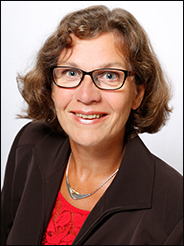Research Interests

Simone Wiegand
Precise knowledge of transport coefficients in terms of diffusion and viscosity in mixtures and solutions plays an important role in chemical processes. The experimental determination of these quantities is often more difficult to obtain than the determination of static properties since the system has to be moved into a non-equilibrium state.
Currently the research of Simone Wiegand focuses on the understanding of hydrogen bonds, which are essential for life on earth. She studies transport processes in aqueous systems, which are influenced by changes in the hydration layer, using optical and scattering methods under isothermal conditions and in temperature gradients.
In recent years, it has been demonstrated that transport in a temperature gradient is very sensitive to changes in the hydration layer and can be used to monitor biochemical and pharmaceutical reactions. Additionally, it appears that so-called thermophoresis plays an important role in the “origin-of-life” scenario. We have optimized a holographic grating technique to quantitatively study processes in aqueous systems.
Education / Research experience
| since 2016 | Joint appointment as a W2 Professor in the Physical Chemistry department of the University of Cologne and Forschungszentrum Jülich |
| since 2003 | Habilitation at the University of Bremen and Senior scientist in the group of Jan Dhont, Director at the Forschungszentrum Jülich GmbH, Institute of Complex Systems, ICS-3. |
| 1998 | Project leader at the the Max Planck Institute for Polymer Research and head of the service group for polymer analysis. |
| 1996 | C1-position at the University of Bremen, studying transport phenomena in complex fluids. |
| 1994 | Feodor Lynen fellowship of the Humboldt foundation and working at NIST in Gaithersburg (USA) on “Spinodal decomposition, viscosity and light scattering on ionic binary mixtures close to the critical point” with Dr. Anneke Levelt-Sengers and Prof. Charles Han. |
| 1993 | Received PhD in physical chemistry on the subject “Phase transitions in binary mixtures close the critical point using light scattering methods” at the University of Bremen, with Prof. Wolffram Schröer. |
| 1988 | Received diplom in physics from the University of Bielefeld, working at the Laser Center Hannover. |
